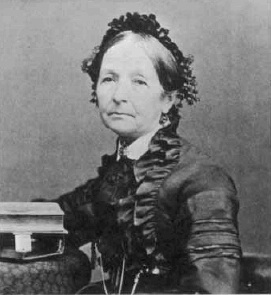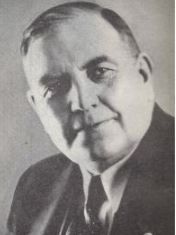 For a lesson titled “Declare My Gospel”, the individual sections don’t seem to focus as much on missionary work as you would think. Instead, the missions discussed are more like the statement often attributed to St. Francis, “Preach the gospel. If necessary use words.”
For a lesson titled “Declare My Gospel”, the individual sections don’t seem to focus as much on missionary work as you would think. Instead, the missions discussed are more like the statement often attributed to St. Francis, “Preach the gospel. If necessary use words.”
Of course, the problem with preaching through actions, even though they are more powerful than words, is that actions are even more liable to be misinterpreted than words are. In this sense, actions are more like poetry than sermons, because they can be interpreted in many ways. By preaching ‘slant’ — that is, from an unusual viewpoint or using an unusual perspective — poetry, like actions, can help us understand what we might not otherwise.
I am called to be a witness of Jesus Christ.
Being a witness is certainly a kind of preaching, since it is not merely passively experiencing a truth, but also being willing to testify that to that truth. And, we witness not only by stating what we have experienced and learned, but also by living those truths. This all comes to us through actions — slant, if you will — from multiple perspectives.
The following poem talks quite a bit about witnesses. The poet, Walter W. Morrison (who I haven’t found out much about), talks in the fourth stanza about walking by faith — which I think is a way of walking slant, with a different perspective — learning as we go. And to me his poem adds the suggestion that our lives are each a kind of witness.
The Witness
by Walter W. Morrison
- More sure than what I see or hear or measure,
- Is the spirit’s witness to the truth revealed –
- More precious far than any earthly treasure,
- Are the covenants by keys of Priesthood sealed.
- The perfect guide, through life to point the way,
- Is freely given to each repentant soul;
- It fills with purpose our beclouded day,
- Disclosing whence we came and what our goal.
- The great Archangel came, with glorious Eve,
- And ate the fruit which genders mortal flesh.
- That waiting spirits might new powers achieve
- And here pursue their destiny afresh.
- We walk by faith and, using, gain its power;
- And here we learn by contrast wrong from right;
- We add the body to the spirit’s dower
- And train its strong desires with growing might.
- This life’s a test – a time of quick unfolding –
- In which we make or mar our destiny, –
- Creative urge and new-found freedom holding –
- Our adolescence in eternity.
- Lest death our hopes destroy, with love divine
- Our loving Father sent his first-born Son
- To bear the shame and guilt that’s yours and mine –
- And cleansed, each temple from its grave is won!
- As a mother knows, when joy her heart has filled,
- That she loves her babe close-folded to her breast,
- So I know when my soul’s illumed and thrilled,
- That prophets speak the truth at God’s behest.
1927
The Lord can help me with my family relationships.
Not only are we called to preach the gospel to others, but we are called to do so to our families, preferably, again, by actions. In fact, because of the feedback that we get from close family relationships, we refine not only our preaching, but also our actions.
T. E. Fifield’s poem that follows is mostly prescriptive, telling us how to conduct these relationships—Fifield’s own preaching, I suppose. But while the poem is quite didactic, it does represent how relationships move in two ways—our actions are reactions to our brothers and sisters, and we should be mindful of how our actions will affect them. Focusing on how our behavior affects the other is often as important as focusing on our own behavior.
Love and Truth
by T. E. Fifield
- Family ties may make brothers and sisters of us, but let the Gospel of the living truth tie the knot of everlasting fellowship in Christ.
- Sisters, learn to love thy sisters, let not evil thoughts inspire,
- But each moment try to raise them in thine estimation higher;
- If they wrong thee, then the knowledge of that wrong is theirs to grieve-
- Thine the honor and the glory in giving them a kind reprieve.
- Sisters, we are fellow sufferers, times there are when noble deeds
- Make the flowers of our bosoms overcome the noxious weeds—
- Make us drop our heads in sorrow, if we have one little wrong—
- Make us longing for the morrow, that shall make our love more strong.
- Brothers, learn to love thy brothers, still the tongue and stay the blow,
- Know you that a word strikes deeper, making the remorse more slow,
- For though no mark is left behind it that the naked eye can see,
- There is yet within their hearts a wound that there should never be.
- Brothers, thou art in God’s image, let thy breasts, be pure and clean,
- Let thy thoughts be just and honored, never harboring one that’s mean;
- Cast them from thee, stamp them down, if they should find a place within,
- For the deadliest deeds of nations have succeeded one small sin.
- Love each other, and a Father’s love shall be thy just return,
- And within each beating bosom let thy Maker’s Spirit burn;
- Then a death shall be a victory, and a grave a bed of rest,
- Forerunner of celestial morrow, age for ages ever blest.
1886
The Lord prepares me for the work He wants me to do
If our preaching is meant for others and for our families, isn’t it also meant for ourselves? The idea of hypocrisy lies in a double standard; different expectations of others from what we expect of ourselves. Given this, at least some of our preaching needs to be turned inward, toward how we should act.

The idea that the Lord is preparing us for some mission in life; often interpreted, at least in US culture, as having a significant impact on the lives of others. But Eliza R. Snow here suggests that most of the time life itself is the mission. In this, I don’t believe she is reducing life to merely the plan of salvation. Instead, this poem seems to portray life itself as worthy, perhaps to “teach how to live” (last stanza), but at least to prepare us for the next life (see the last line.)
Life
by Eliza R. Snow
- LIFE! What a treasure, how great is its worth!
- Life! What a blessing to man on the earth!
- Life let us value and cherish the prize,
- Learn to preserve it, ye Saints, and be wise.
- Vainly we struggle preparing to die,
- Vainly aspire to the mansions on high;
- If we are abusing the life we receive,
- It is not to die, it is duty to live.
- Life is the crown we are toiling to gain,
- Live is the jewel we hope to obtain,
- Life——the existence God gives us today;
- Life is no trifle to barter away.
- What tho’ in patience and faith we endure,
- Life, life eternal we cannot secure
- Till we shall learn how to value and save
- Life, present life, from a premature grave.
- Life, present life, let us study its laws,
- Know each effect, understand every cause,
- Seek to promote it and lengthen its span.
- Life, present life, what a blessing to man,
- Great is the mission to teach how to live.
- Long life is profered, O, who will receive?
- Life is a pledge of existence on high,
- Learning to live will prepare us to die.
1870s
If I build my life on the Savior’s gospel, I will not fall.

Eliza R. Snow isn’t the only LDS poet to weigh in on our responsibility to ourselves, or our mission or preaching to ourselves. Here, Harrison R. Merrill, one of the frequent authors of textbooks and manuals for the Church in the 1930s, writes about how our lives build from day-to-day. The poem suggests that while we have an unchangeable past and an unknowable future, we are in control of the present, and our actions, a kind of preaching to our future selves, can literally save those selves, making our current selves possible saviors.
Christmas Eve on the Desert
by Harrison R. Merrill
- Tonight, not one alone am I but three –
- The Lad I was the Man I am, an he
- Who looks adown the coming future years
- And wonders at my sloth. His hopes and fears
- Should goad me to the manly game
- Of adding to the honor of my name.
- I’m Fate to him — that chap that’s I, grown old,
- No matter how much stocks and lands and gold
- I save for him, he can’t buy back a single day
- On which I built a pattern for his way.
- I, in turn, am product of that Boy
- Who rarely thought of After Selves. His joy
- Was in the present. He might have saved me woe
- Had he but thought. The ways that I must go
- Are his. He marked them all for me
- And I must follow — and so must he –
- My Future Self — Unless I save him!
- Save? — Somehow that word,
- Deep down, a precious thought has stirred!
- Savior? — Yes, I’m savior to that “Me,”
- That thoughtful After Person whom I see! –
- The thought is staggering! I sit and gaze
- At my two Other Selves, joint keepers of my days!
- Master of Christmas, You dared to bleed and die
- That OTHERS might find life. How much more I
- Should willingly give up m present days
- To lofty deeds; seek out the ways
- To build a splendid life. I should not fail
- To set my feet upon the star bound trail
- For him — that After Self. You said that he
- Who’d lose his life should find it, and I know
- You found a larger life, still live and grow.
- Your doctrine was, so I’ve been told, serve man.
- I wonder if I’m doing all I can
- To serve? Will serving help that Older Me
- To be the man he’d fondly like to be?
- Last night I passed a shack
- Where hunger lurked. I must go back
- And take a lamb. Is that the message of the Star
- Whose rays, please God, can shine this far?
- Tonight, not one alone am I but three –
- The Lad I was, the Man I am, and he
- Who is my Future Self — nay, more,
- I am HIS savior — that thought makes me four!
- Master of Christmas, that Star of Thine shines clear –
- Bless Thou the four of me — out here!
1931
